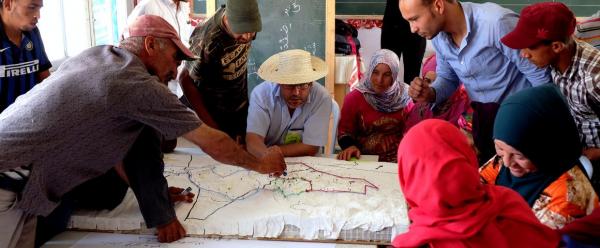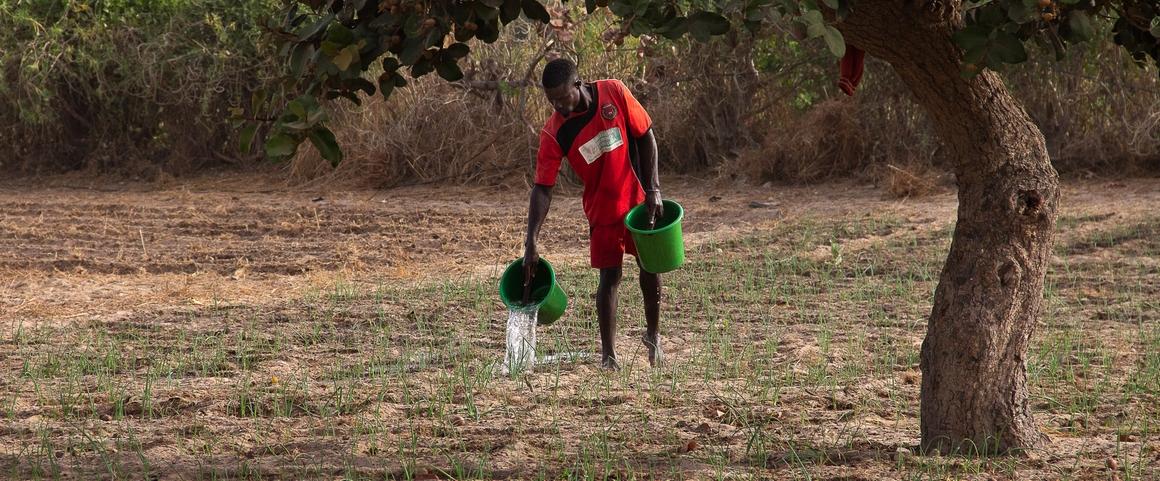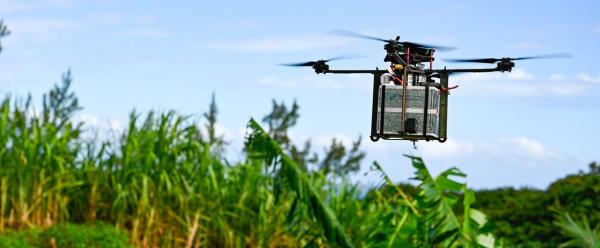In December 2021, FAO already expressed alarm about the degradation of the state of the world’s land and water resources, warning of “systems at breaking point”. This summer, while France is experiencing an unprecedented drought, the UN agency has published the technical reports that underpinned its findings in December. Seven scientists from CIRAD are the authors of one of these reports.
Agriculture is more and more water-intensive
Focusing on the impacts of the water crisis on small-scale agriculture, CIRAD’s technical report is based on an initial observation: water use is increasing at twice the rate of world population growth.
According to Caroline Lejars, a researcher in management sciences at CIRAD, Assistant Director of the G-EAU research unit and coordinator of the report, “agricultural water use is skyrocketing because of changes in diets, agricultural intensification and urbanisation. Meat consumption has increased by 60% over the last 20 years. Cities are expanding into fertile lands, close to water points, shifting cropland areas to land that is less suited to crop production and often requires more water”. This situation is exacerbated by competition from other water uses, such as energy production.
Past public policies show mixed results
The authors of the report point out that public policies over the last 10 years have invested heavily in irrigation and large water infrastructures. “Public policies have sought to increase water supply and to develop irrigation”, says Caroline Lejars. “Securing access to water has enabled millions of people to escape poverty. But these policies have also increased inequalities and encouraged the overexploitation of water resources”.
Over and above the environmental impacts, water scarcity exacerbates social inequalities and migration. In many regions, conventional pumping technologies are no longer enough to access the groundwater, which has almost dried up. Smallholder farms, which lack the means to invest in new pumping or seawater desalination technologies, are being abandoned.
Towards territory-based solutions
PACTE, MASSIRE and SERTOES: for more than 10 years, CIRAD has been leading numerous research and development projects on territory-based approaches to water management. Building on this experience, the authors of the report highlight the advantages of territory-based policies in terms of the involvement of local communities, but also their effectiveness in integrating different sectors into their design process.
Caroline Lejars explains: “Water, land, energy and food policies are still too often developed in silos, whereas the solutions actually require close coordination between these different sectors. Territory-based policies, in particular through participatory approaches, take better account of these interdependencies and respond more effectively to these complex challenges”.
Systems at breaking point: this is the subtitle of the latest FAO report on the state of the world’s land and water resources. Among the possible solutions, CIRAD argues in favour of territorial approaches and participatory decision-making processes. These powerful tools enable the design of more inclusive public policies that are capable of driving the transition to more sustainable development models. An analysis developed in a supplementary thematic report to the FAO report and coordinated by CIRAD.
Systems at breaking point: this is the subtitle of the latest FAO report on the state of land and water resources. Among the possible solutions, CIRAD calls for territory-based approaches and participatory decision-making processes. These powerful tools can be used to design more inclusive public policies that can drive the transition to more sustainable development models. CIRAD has coordinated an analysis that is included in a thematic report supplementary to the FAO report.
Among the other recommendations, the report highlights the technical solutions provided by agroecological practices in irrigation systems. Too often overlooked in the context of irrigation, agroecology is nevertheless used by many smallholder farmers cultivating irrigated crops to adapt to water scarcity. In the framework of projects such as IRRINN and VIANA, CIRAD works to identify these practices and to subsequently disseminate them in territories with similar challenges.
Download the report
Mayaux, L.P., Lejars, C., Farolfi, S., Adamczewski-Hertzog, A., Hassenforde, E., Faysse, N., Jamin, J.Y. 2022. Enabling institutional environments conducive to livelihood improvement and adapted investments in sustainable land and water uses. SOLAW Background Thematic Report. Rome, FAO.





























